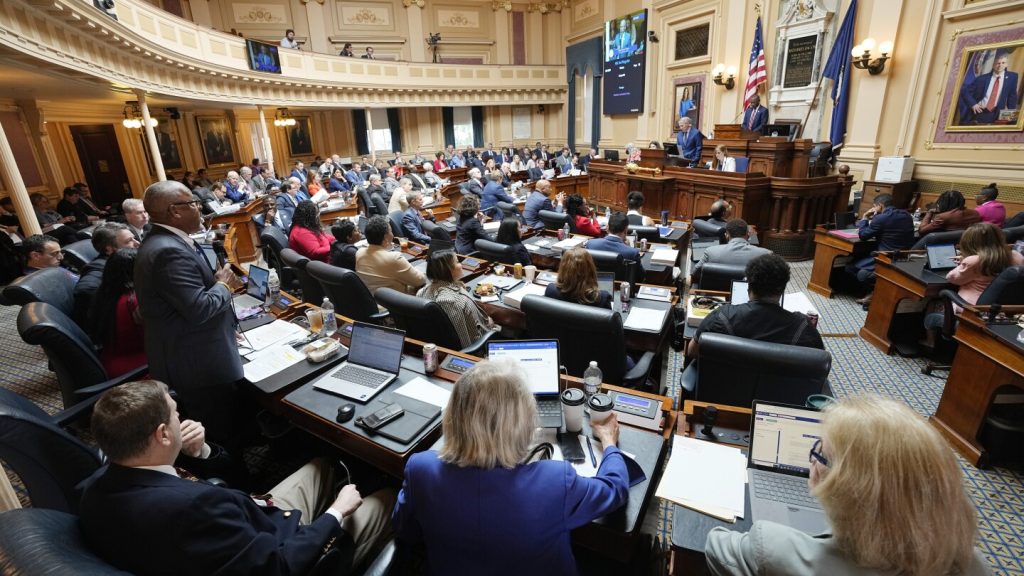In a recent development in Virginia, Democratic lawmakers have reached a compromise budget agreement with Republican Governor Glenn Youngkin that would provide increased funding for public schools, pay raises for teachers and government workers, and maintain the current tax policy. The budget plan, which is expected to be approved in a special session, retains the same spending priorities as the previous version adopted in March, with some technical adjustments. The budget includes record funding for K-12 schools and 3% raises for teachers and state employees each year.
The budget for the 2024-2026 biennium benefits from higher-than-expected revenues, allowing lawmakers to maintain key allocations without implementing a proposed new sales tax on digital goods. Year-end revenue collections are predicted to exceed forecasts by over $1.2 billion, and the budget will remain balanced even if revenues increase by $525 million. Technical changes, such as wiping out funding for a now-nixed minimum wage increase, helped close the budget gap. The plan also includes taking on debt for capital projects instead of using $500 million in cash.
The disagreement over the proposed tax on digital goods had been a major point of contention between lawmakers and the governor, with Youngkin initially proposing the tax in December. However, the governor’s idea was met with opposition from Democratic legislators who removed it from the final budget version. The compromise deal does not include the proposed tax but may revisit the issue of tax system modernization next year. The budget also lacks language forcing the state to rejoin a regional carbon cap-and-trade plan, which Youngkin opposes.
The compromise budget deal also does not address the legalization of skill games, the slot-like betting machines that were banned in Virginia but drew controversy. Youngkin faces a deadline to decide on a bill that would green-light and tax these machines, after the General Assembly rejected many of his proposed changes to the measure in April. Lawmakers are also expected to address the so-called caboose budget, making minor adjustments to the existing budget that runs through June. Overall, the budget compromise reflects a balance between key priorities, financial sustainability, and political differences among legislators and the governor.


